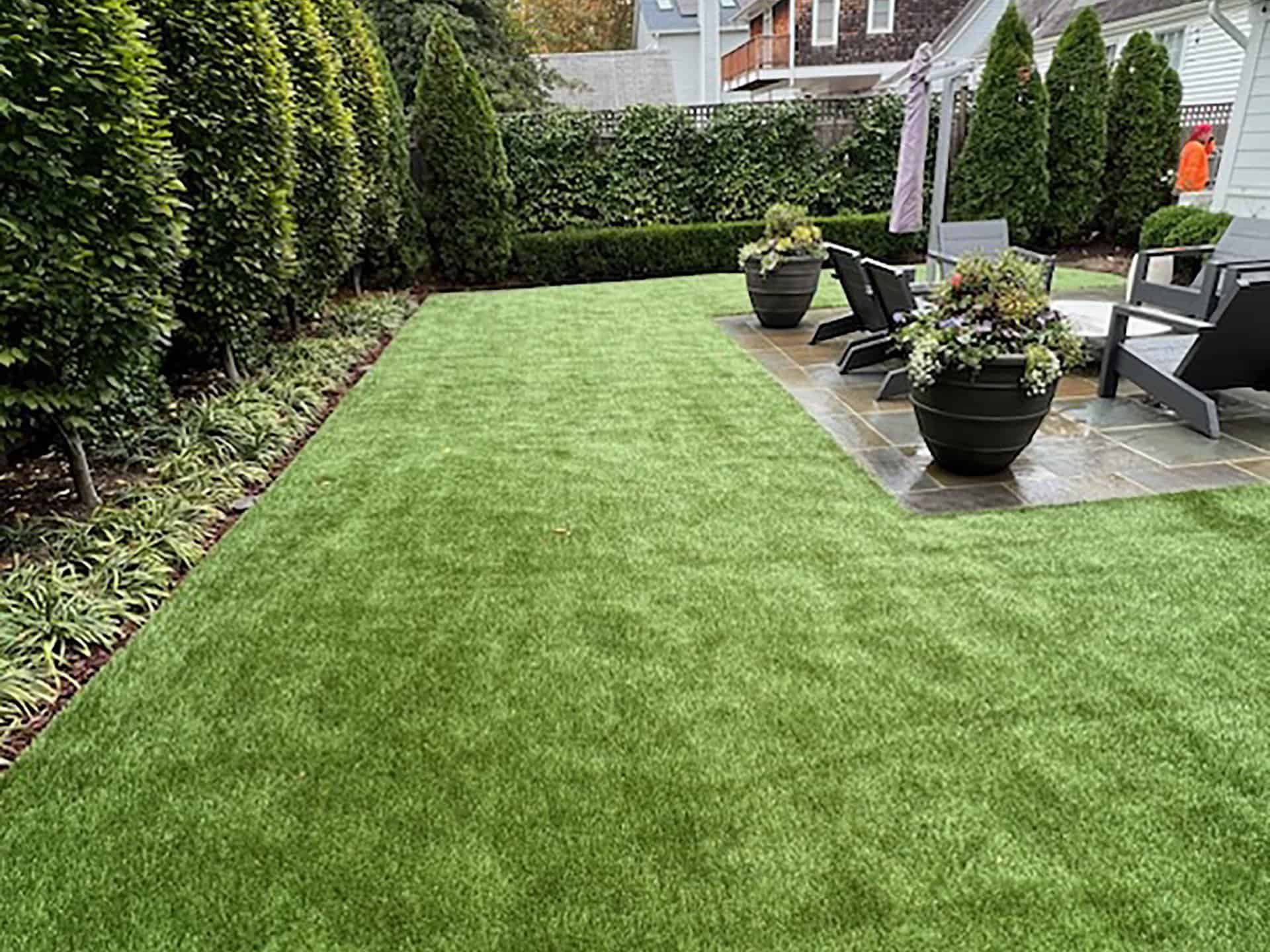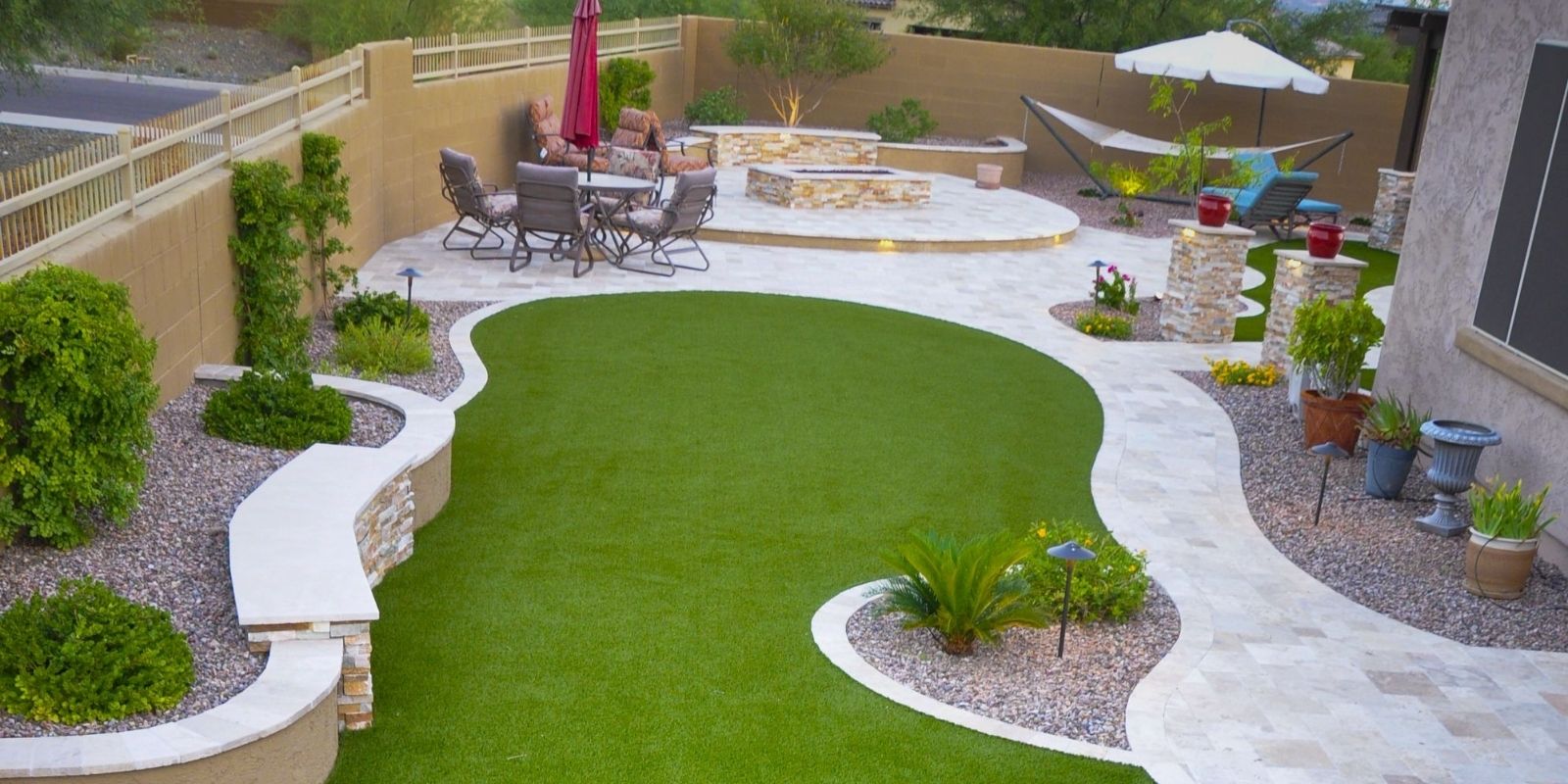Find Reputable Artificial Turf Companies Phoenix for High-Quality and Realistic Grass
Find Reputable Artificial Turf Companies Phoenix for High-Quality and Realistic Grass
Blog Article
Delve Into the Environmental Advantages of Opting for Synthetic Grass Solutions
The fostering of man-made grass options presents a compelling chance to attend to pressing environmental obstacles. By considerably minimizing water use and lessening the application of hazardous chemicals, these options not only advertise sustainable landscaping but also shield regional ecological communities. Moreover, the reduced carbon footprint connected with decreased upkeep activities adds to an extra sustainable approach to land monitoring. Nevertheless, the implications of these advantages prolong beyond simple conservation efforts, elevating concerns concerning their long-term effect on environment preservation and total ecological balance. Exploring these measurements discloses a complex interplay worth taking into consideration.
Water Preservation Benefits
One of the most considerable advantages of fabricated grass is its ability to conserve water. In comparison, man-made turf does not need watering, substantially decreasing the overall need for water resources.
By getting rid of the need for routine watering, synthetic grass adds to sustainable landscape methods and assists mitigate the ecological influence of extreme water usage. The preservation of water extends to the reduction of drainage, which can lead to soil erosion and river air pollution.
Furthermore, the installation of synthetic grass enables home owners and municipalities to allocate water resources a lot more effectively, concentrating on crucial uses such as drinking water and agriculture. The change in the direction of synthetic grass not just promotes liable water use but also straightens with wider ecological objectives targeted at maintaining natural deposits.
As areas increasingly focus on sustainability, the water conservation benefits of man-made lawn offer an engaging instance for its fostering in household and business landscape design tasks.
Decreased Chemical Usage
The shift to artificial turf significantly lowers the dependence on chemical therapies frequently utilized in all-natural yard upkeep. Typical lawn monitoring typically involves the application of chemicals, herbicides, and plant foods to promote growth and control pests. These chemicals can posture threats to human health and wellness, regional wildlife, and the atmosphere, contributing to soil and water contamination.
On the other hand, synthetic grass gets rid of the need for these hazardous materials. As soon as set up, it requires very little upkeep, largely being composed of routine cleansing and occasional infill replenishment. This reduction in chemical usage not only profits the prompt atmosphere but also adds to more comprehensive eco-friendly stability. By lessening the release of synthetic compounds right into the environment, synthetic grass promotes much healthier soil and water systems.
Moreover, the lack of chemical runoff related to synthetic grass installments assists protect regional waterways from pollution, supporting water life and keeping biodiversity. Artificial turf companies phoenix. As communities progressively prioritize sustainable practices, going with synthetic grass presents a sensible solution that lines up with ecological preservation goals. Via this change, homeowner can delight in lavish green spaces without jeopardizing environmental health and wellness, leading the means for a more sustainable future
Lower Carbon Impact

Moreover, the installment of synthetic grass can lead to considerable water preservation. All-natural grass require considerable amounts of water for irrigation, which not only includes in the carbon footprint related to water removal and therapy but likewise pressures regional water sources. On the other hand, fabricated lawn needs minimal maintenance, requiring no watering, thereby considerably minimizing water use and its connected energy expenses.
In addition, the durability of artificial turf adds to its lower carbon influence. With a lifespan of up to 15 years or even more, the demand for regular replacements is decreased, resulting in much less waste and reduced energy consumption in production and throwing away traditional lawn options. Overall, synthetic grass offers a sustainable option for eco aware landscaping.
Habitat Preservation
Habitat conservation is an important consideration in the dispute over landscape design choices, particularly when contrasting man-made turf to all-natural grass. All-natural turf yards typically need comprehensive upkeep, including making use of herbicides, chemicals, and fertilizers, which can detrimentally impact neighborhood ecological communities. These chemicals can leach right into the soil and rivers, damaging indigenous flora and animals and disrupting local habitats.
Artificial turf removes the need for damaging chemicals, consequently shielding close-by wild animals and preserving the stability discover here of surrounding environments. The setup of man-made lawn can lead to the conversion of previous lawn areas into more biodiverse landscapes, such as pollinator yards or indigenous plant locations, which can sustain local wildlife.
Ultimately, the transition to synthetic grass not just preserves water and lowers upkeep initiatives however also promotes a more unified partnership between human activities and the native environment, advertising habitat preservation in the procedure.
Long-Term Sustainability
Lasting sustainability is an important consider reviewing the benefits of synthetic grass over standard lawn lawns. Among the most considerable benefits of fabricated grass is its sturdiness; it can last up to 15-20 years with very little upkeep, whereas natural yard needs frequent reseeding and substitute. This durability reduces the demand for continuous sources, such as water, fertilizers, and chemicals, which are crucial for preserving a healthy and balanced turf yard.
Furthermore, synthetic grass adds to a decrease in carbon discharges connected with yard treatment devices. Traditional yards usually need gas-powered mowers, trimmers, and blowers, every one of which add to air pollution. Turf installation phoenix az. On the other hand, synthetic grass removes the demand for such devices, advertising a cleaner environment
Additionally, the production of synthetic turf progressively utilizes recycled materials, improving its sustainability account. As manufacturers embrace environment-friendly techniques, the environmental footprint of synthetic grass continues to reduce.

Verdict
The adoption of man-made turf remedies provides substantial environmental benefits, including significant water conservation, reduced dependence on harmful chemicals, and a reduced carbon footprint. Furthermore, synthetic grass help in maintaining natural environments by reducing land disruption and promoting long-lasting sustainability with using long lasting materials. Jointly, these elements underscore the capacity of synthetic grass to contribute favorably to environmental wellness and offer a feasible choice to traditional landscape design methods in an increasingly resource-conscious world.
In comparison, fabricated turf does not need watering, substantially reducing the overall demand for water resources. By lessening the release of synthetic compounds into the environment, fabricated lawn advertises healthier soil and water systems.
Additionally, the setup of man-made lawn can result in substantial water conservation. In comparison, fabricated lawn requires marginal upkeep, calling for no watering, consequently dramatically reducing water usage and its connected power expenses.

Report this page